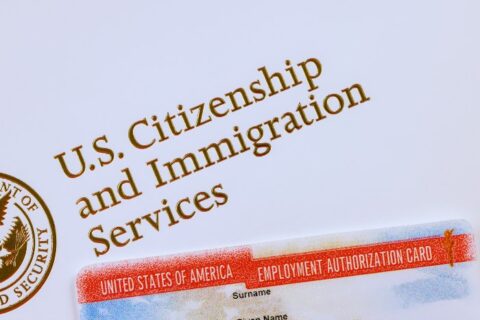Am I Getting Deported?
Many people have been asking, “Am I going to get deported?” With recent immigration policies under the Trump administration, my office receives around 20 calls a day from individuals worried about their legal status.
The short answer? It depends on your circumstances.
Let’s break it down and help you understand who is at risk and what you can do to protect yourself.
Who Is Most at Risk for Deportation?
Under the Trump administration, immigration enforcement has prioritized certain groups for deportation:
1. Criminal Offenders
Anyone convicted of serious crimes is at high risk, including:
- Violent crimes (murder, assault, domestic violence)
- Drug-related offenses (possession of cocaine, heroin, fentanyl, meth)
- Crimes against children (abuse, sex offenses)
- Identity fraud (fake documents, stolen IDs)
- DUI offenses
2. Repeat Immigration Violators
- Those who were previously deported but returned illegally
- Individuals with final orders of deportation who have exhausted all appeals
3. National Security Threats
- Known terrorists
- Members of gangs like MS-13 and Tren de Aragua
- Individuals with ties to drug cartels
4. Recent Border Crossers
- Those who entered the U.S. illegally within the last few months
If you don’t fall into one of these categories, your risk of deportation is much lower.
What Are the New Immigration Policies?
As of February 2025, several new policies have been implemented:
1. Executive Order 14159 (“Protecting the American People Against Invasion”)
- Faster deportations through expedited removal
- Sanctions against sanctuary cities that don’t cooperate with ICE
- Stricter immigration-related penalties
- More ICE agents hired
- Limited access to public benefits for undocumented immigrants
2. Laken Riley Act (January 2025)
- Requires detention of undocumented individuals charged with theft, assaulting a police officer, or serious bodily harm.
- Allows states to sue the Department of Homeland Security over immigration enforcement.
3. “Operation Safeguard”
- Focuses on detaining and deporting violent offenders in urban areas.
4. Policy Reversals
- End of “catch and release” (detained immigrants are no longer released while awaiting hearings).
- Return of “Remain in Mexico” (asylum seekers must wait outside the U.S.).
How Does ICE Target Individuals?
ICE does not conduct random searches at schools or churches. Instead, they focus on:
- Jail & Court Checks
- ICE monitors local jails and court records for individuals without legal status.
- If you are arrested, ICE may place a detainer on you for deportation.
2. Workplace Raids
- Large employers with a high number of undocumented workers are often targeted.
- If ICE raids a company, they check work authorizations, leading to arrests.
3. Criminal Proceedings
- If you are charged with a crime, ICE may track your case and detain you.
- Some local authorities cooperate with ICE, handing over individuals after court cases.
How to Avoid Deportation
If you are undocumented but haven’t committed crimes, your risk of deportation is low. However, here are some practical steps to protect yourself:
✅ Obey the law. Even a minor traffic ticket can lead to ICE involvement if ignored.
✅ Avoid using fake documents. Possession of false IDs can result in immediate arrest.
✅ Be cautious of employment. Avoid companies with a large undocumented workforce that may be targeted by ICE.
✅ Stay informed. Misinformation spreads fear—ICE is not raiding schools or churches unless targeting a specific person.
✅ Know your rights. If ICE detains you, seek immediate legal assistance.
If you or a loved one is in ICE custody, there may be legal options available to fight deportation. Every case is unique, so it’s important to speak with an experienced immigration attorney as soon as possible.
Need help? Contact us today for a confidential consultation.


